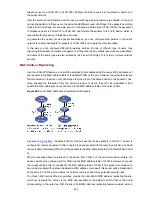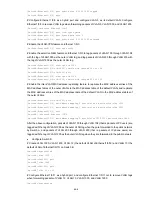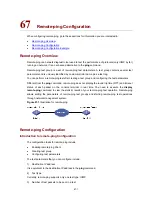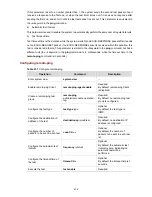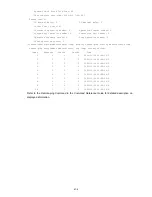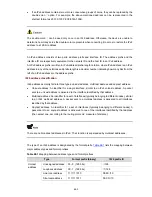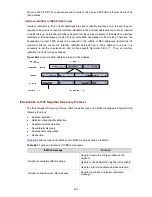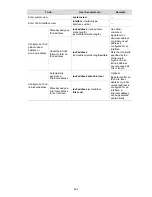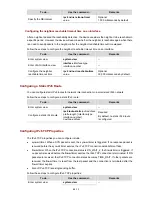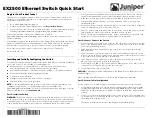
z
If an IPv6 address contains two or more consecutive groups of zeros, they can be replaced by the
double-colon :: option. For example, the above-mentioned address can be represented in the
shortest format as 2001:0:130F::9C0:876A:130B.
The double-colon :: can be used only once in an IPv6 address. Otherwise, the device is unable to
determine how many zeros the double-colon represents when converting it to zeros to restore the IPv6
address to a 128-bit address.
An IPv6 address consists of two parts: address prefix and interface ID. The address prefix and the
interface ID are respectively equivalent to the network ID and the host ID in an IPv4 address.
An IPv6 address prefix is written in IPv6-address/prefix-length notation, where IPv6-address is an IPv6
address in any of the notations and prefix-length is a decimal number indicating how many bits from the
left of an IPv6 address are the address prefix.
IPv6 address classification
IPv6 addresses mainly fall into three types: unicast address, multicast address and anycast address.
z
Unicast address: An identifier for a single interface, similar to an IPv4 unicast address .A packet
sent to a unicast address is delivered to the interface identified by that address.
z
Multicast address: An identifier for a set of interfaces (typically belonging to different nodes), similar
to an IPv4 multicast address. A packet sent to a multicast address is delivered to all interfaces
identified by that address.
z
Anycast address: An identifier for a set of interfaces (typically belonging to different nodes).A
packet sent to an anycast address is delivered to one of the interfaces identified by that address
(the nearest one, according to the routing protocols’ measure of distance).
There are no broadcast addresses in IPv6. Their function is superseded by multicast addresses.
The type of an IPv6 address is designated by the format prefix.
Table 68-1
lists the mapping between
major address types and format prefixes.
Table 68-1
Mapping between address types and format prefixes
Type
Format prefix (binary)
IPv6 prefix ID
Unassigned address
00...0 (128 bits)
::/128
Loopback address
00...1 (128 bits)
::1/128
Link-local address
1111111010 FE80::/10
Unicast
address
Site-local address
1111111011 FEC0::/10
68-3



